Session 1: Moving Diversity, Equity, and Inclusion Programs Forward
Recognizing the role that our words and deeds play in establishing the organizational culture can go a long way to creating – or maintaining – a workplace where everyone feels appreciated and respected. This session opens a discussion as to how diversity, equity, and inclusion present themselves, and how programs may be designed to impact the workplace. We will review some of the issues raised in workplaces today – especially in light of the recent Black Lives Matter movement seeking systemic changes in how we view race in America. We also will consider the challenges presented by making employment decisions and considering ways to ensure our workforces are diverse. Finally, this session will identify some of the litigation trends we are seeing that touch upon issues related to organizational diversity, equity, and inclusion.
In this session attendees will learn:
- How diversity, equity, and inclusion present themselves in the workplace
- How to ensure a diverse workforce
- Litigation trends related to organizational diversity, equity, and inclusion
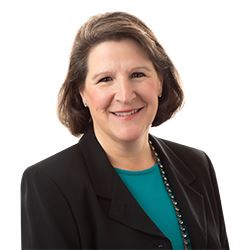 Kate Mrkonich Wilson has successfully litigated employment discrimination, contract, and tort cases before juries and judges in both federal and state courts across the country. She also has substantial experience with matters referred to alternative dispute resolution. Practicing before federal and state courts and administrative agencies, including the Equal Employment Opportunity Commission and its state counterparts, Kate has specific experience providing litigation defense of claims arising under:
Kate Mrkonich Wilson has successfully litigated employment discrimination, contract, and tort cases before juries and judges in both federal and state courts across the country. She also has substantial experience with matters referred to alternative dispute resolution. Practicing before federal and state courts and administrative agencies, including the Equal Employment Opportunity Commission and its state counterparts, Kate has specific experience providing litigation defense of claims arising under:
- Title VII of the Civil Rights Act
- The Americans with Disabilities Act
- The Age Discrimination in Employment Act
- The Family and Medical Leave Act
She also routinely counsels clients on:
- Reorganizations
- Leaves of absence
- Training
- Best practices
- Investigations Compliance
- All other aspects of personnel management
Additionally, Kate contributes to employment law publications and frequently conducts training programs and seminars for all levels of management in various industries. Topics have encompassed:
- Harassment in the workplace
- Properly conducting workplace harassment investigations
- Minimizing legal risks in the workplace
- Managing compliance with ADA, FMLA and other leaves and accommodations
- Managing problem employees
The proper handling of reductions-in-force
Kate's clients span numerous industries. Kate is currently serving as the Chair of Littler's Board of Directors and as a member of the Women's Leadership Initiative Steering Committee. She was one of the founding shareholders of Littler's Chicago and Minneapolis offices, and formerly served as the office managing shareholder in Minneapolis.
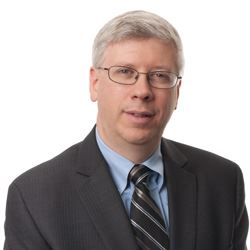 David J. Goldstein is co-chair of the firm’s OFCCP Practice Group and Government Contractors Industry Group. David’s practice is devoted to assisting employers with the implementation and maintenance of effective affirmative action programs and representing government contractors before the Office of Federal Contract Compliance Programs (OFCCP), as well as similar state and local agencies. In March 2014, David testified before the U.S. House Subcommittee on Workforce Protections providing insight on how healthcare employers are making strategic decisions based on possible OFCCP actions.
David J. Goldstein is co-chair of the firm’s OFCCP Practice Group and Government Contractors Industry Group. David’s practice is devoted to assisting employers with the implementation and maintenance of effective affirmative action programs and representing government contractors before the Office of Federal Contract Compliance Programs (OFCCP), as well as similar state and local agencies. In March 2014, David testified before the U.S. House Subcommittee on Workforce Protections providing insight on how healthcare employers are making strategic decisions based on possible OFCCP actions.
Because affirmative action programs implicate all employment related practices and policies as well as a wide array of laws and regulations, David’s clients benefit from his more than 30 years of experience as a trial lawyer and counselor. He has worked with in-house counsel, business leadership, and HR professionals to proactively identify and implement creative solutions for complying with employment related legal and regulatory requirements, avoiding liability, and resolving internal and external disputes. His experience includes representing employers in trials before federal and state courts and administrative agencies, including class action litigation. David also frequently works with mediation and other dispute-resolution techniques in order to efficiently resolve disputes. David’s clients include health care providers, manufacturers, construction companies, colleges and universities, and professional sports organizations.
Session 2: There’s No Place Like Home: Remote Work and The Future of Work
The COVID-19 pandemic has fundamentally changed how we work and how we manage our workforce. In this session, we will cover a range of legal topics brought to the forefront by the pandemic and the transition to large-scale remote work, including considerations in managing a remote workforce, telework policies and missteps that could create legal exposure, and will share insights into potential areas of risk that should be mitigated now to avoid litigation in the future.
In this session attendees will learn:
- Considerations for managing a remote workforce
- Telework policies and missteps that could create legal exposure
- Insights into potential areas of risk that should be mitigated
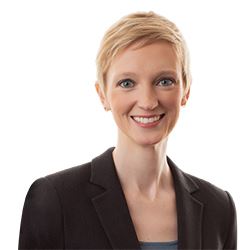 Claire B. Deason’s practice covers all areas of employment and labor litigation and advising, with a specific emphasis on
Claire B. Deason’s practice covers all areas of employment and labor litigation and advising, with a specific emphasis on
wage and hour litigation and compliance under the Fair Labor Standards Act (FLSA).
In litigation, Claire develops creative, cutting-edge strategies for early resolution and dismissal of collective actions
and has efficiently resolved collective actions for clients in the hospitality, service, and oil and gas industries. Claire has
extensive experience with all stages of wage and hour litigation, including:
- Early and representative discovery
- Conditional certification
- Decertification
- Individual and collective settlements
In her wage and hour compliance work, Claire advises clients on all aspects of current wage and hour law and works closely with clients to develop compensation programs, create practical and manageable telework compliance, revise payroll practices and calculation methods, review position classifications, and coordinate messaging and training to communicate changes to the workforce.
In addition to her wage and hour practice, Claire represents clients in traditional discrimination suits and agency charges under both federal and state laws. She advises clients on all aspects of day-to-day personnel matters, including leave and disability issues, employee discipline, and termination. Claire’s experience includes counseling clients in issues arising under federal immigration laws. In her pro bono practice, she has successfully obtained asylum, Permanent Resident status, and humanitarian parole for clients in individual immigration matters before U.S. Citizen and Immigration Services and U.S. Department of State.
In law school, Claire was awarded the Steven M. Block Prize for Civil Rights and Civil Liberties for her article in the Minnesota Law Review, of which she was managing editor.
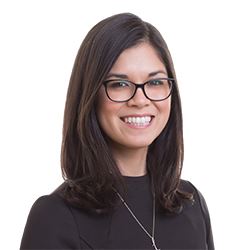 Lyndsey M. Marcelino provides advice and counsel to clients on a variety of employment issues, under state and federal law, relating to wage and hour law including pay practices and worker classification issues, as well as sexual harassment, discrimination, retaliation, wrongful termination, and breach of contract issues. Lyndsey also has significant experience counseling gig economy companies on how to properly classify workers, avoid litigation, and develop policies and practices consistent with state and federal law.
Lyndsey M. Marcelino provides advice and counsel to clients on a variety of employment issues, under state and federal law, relating to wage and hour law including pay practices and worker classification issues, as well as sexual harassment, discrimination, retaliation, wrongful termination, and breach of contract issues. Lyndsey also has significant experience counseling gig economy companies on how to properly classify workers, avoid litigation, and develop policies and practices consistent with state and federal law.
When a client is sued, Lyndsey has extensive experience handling all stages of litigation, including initial fact gathering, briefing certification and dispositive motions, managing pretrial discovery, and preparing for depositions with the dual goals of seeking early and efficient resolution of disputes through mediation or negotiated settlement, and ensuring the case is prepared for success at trial. She has represented individual and corporate clients in numerous mediations and in confidential arbitration proceedings.
Additionally, Lyndsey conducts training seminars on employment issues for companies and their managers. She also has counseled numerous clients developing and drafting employment agreements, policies, and handbooks that are both legally compliant and consistent with the client’s workplace culture.
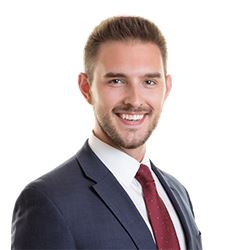 Corey J. Christensen defends employers against claims of wrongful termination, harassment, discrimination, and retaliation at all stages of proceedings before federal and state courts, administrative agencies, arbitrators, and mediators. Corey has experience defending multi plaintiff lawsuits involving employee misclassification, workplace restructurings, and reductions in force. Corey also advises on and defends matters concerning physical access to places of public accommodation. Equally as important, Corey helps avoid litigation by advising management on sound employment practices.
Corey J. Christensen defends employers against claims of wrongful termination, harassment, discrimination, and retaliation at all stages of proceedings before federal and state courts, administrative agencies, arbitrators, and mediators. Corey has experience defending multi plaintiff lawsuits involving employee misclassification, workplace restructurings, and reductions in force. Corey also advises on and defends matters concerning physical access to places of public accommodation. Equally as important, Corey helps avoid litigation by advising management on sound employment practices.
Prior to joining Littler, Corey gained experience with many different types of employment claims by serving as a judicial law clerk to the Hon. Richard H. Kyle, U.S. District Judge for the U.S. District Court for the District of Minnesota. Earlier,during law school, Corey worked as a certified student attorney for the Ramsey County Attorney’s Office, where he obtained significant courtroom experience.
Session 3: MINNESOTA EMPLOYMENT LAW UPDATE: Lessons from 2020 and What You Need To Know Going Into 2021
Minnesota employers have faced new and unique challenges in 2020 that are unlike almost anything most have ever experienced before. The COVID-19 crisis has not only changed how work is being performed by employees, but also how employers must think about state and local laws and ordinances that may apply to their operations in this new work environment. Additionally, employers must stay on top of the legislative changes brought in 2020 before the pandemic. We will address the following: the intersection of COVID-19 and Minnesota law, including compliance challenges and strategies for Minnesota employers relating to Governor Walz’s executive orders, the Minnesota Wage Theft Act, and local sick and safe time ordinances, the Minneapolis Freelance Worker Protections Ordinance impacting independent contractors. This session will also address significant legal developments in Minnesota in 2020, including the Minnesota Supreme Court’s recent decision in Kenneh, which may have a lasting impact on sexual harassment claims under the Minnesota Human Rights Act, and the Minnesota Supreme Court’s reconsideration of the Lee case, which rejected an employee’s argument that accrued and unused vacation is considered “wages” that must be paid out upon termination of employment under Minnesota law.
In this session attendees will learn:
- Intersection of COVID-19 and Minnesota law
- Compliance challenges & strategies for Minnesota employers related to Governor Walz’s executive orders
- Impact of Minnesota Supreme Court case - Kenneh
Stephanie D. Sarantopoulos represents and counsels employers in all aspects of employment law, including discrimination, harassment, whistleblowing and noncompetition matters.
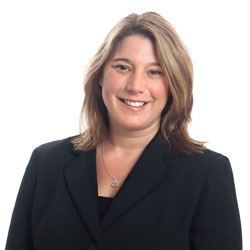 Stephanie has jury trial experience and appears in state and federal courts, as well as before the Equal Employment Opportunity Commission. She handles claims arising under:
Stephanie has jury trial experience and appears in state and federal courts, as well as before the Equal Employment Opportunity Commission. She handles claims arising under:
-
- Title VII
- The Americans with Disabilities Act
- The Age Discrimination in Employment Act
- The Family and Medical Leave Act
Working predominately with retail clients, Stephanie also regularly advises employers on day-to-day concerns.
Stephanie has given several presentations on overtime laws and employee discipline and documentation and has lectured on various employment and other litigation matters.
Stephanie is a member of Littler Mendelson's Retail Practice Group and also serves on the firm's Associates Committee. She is the firm’s representative for the Twin Cities Diversity Practice group and serves as its lead mentor.
Previously, Stephanie worked at a small boutique law firm where she focused on employment matters. In law school, she was director of the Esdaile Moot Court program, vice president of the Health Law Association, and a counselor for the Boston District Court's Battered Women's Advocacy Project.
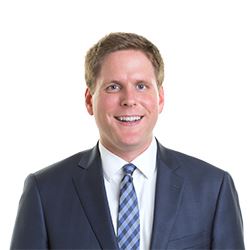 Ben Sandahl represents clients in a variety of labor and employment matters. In addition to actively litigating cases, he frequently advises clients regarding pre-litigation matters in attempts to avoid litigation, with the goal of correct positioning should litigation arise.
Ben Sandahl represents clients in a variety of labor and employment matters. In addition to actively litigating cases, he frequently advises clients regarding pre-litigation matters in attempts to avoid litigation, with the goal of correct positioning should litigation arise.
Prior to joining Littler, Ben worked at another national law firm. He won the then-largest judgment in the history of Illinois and the largest breach of fiduciary duty judgment in the United States for a real estate company by writing a partial summary judgment motion that the court largely granted.
For additional event and registration information, visit the TCSHRM website.
